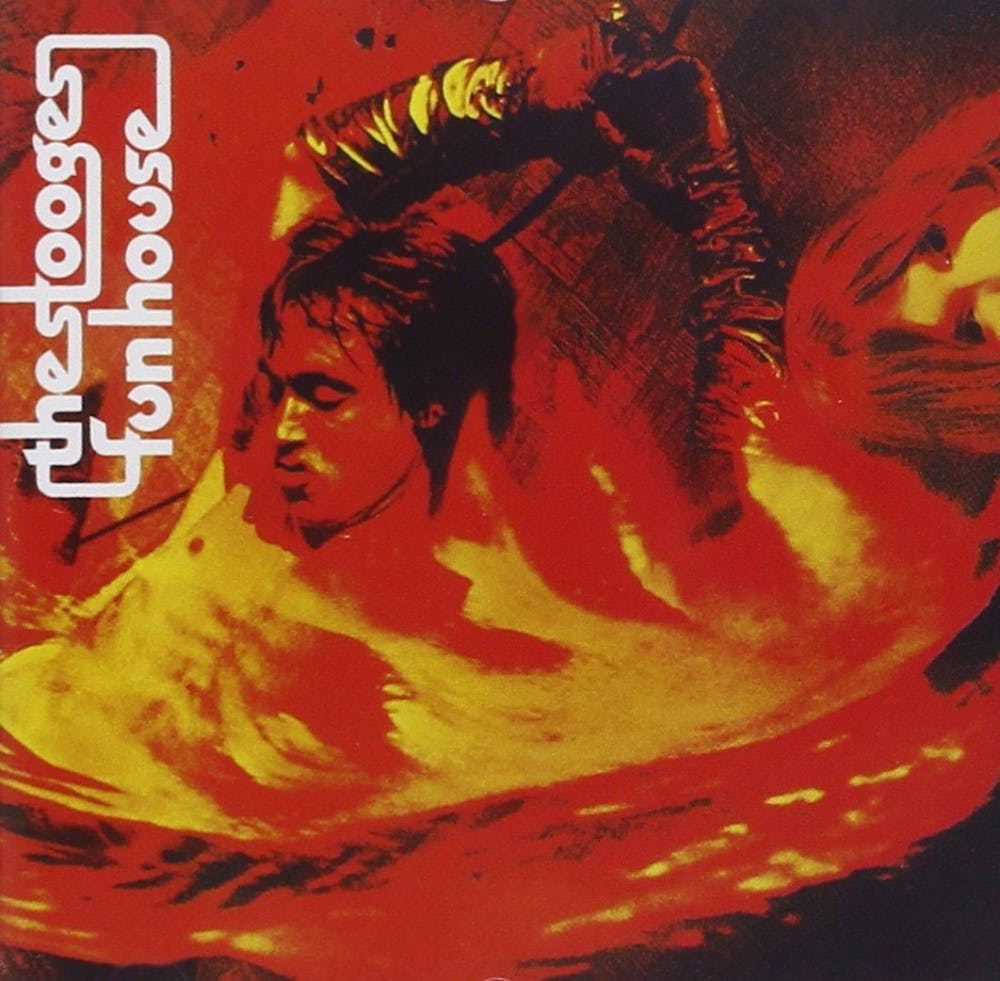Welcome to The Vinyl Voyager. My weekly diary of what music on vinyl, in its purest form, means to me. Track-by-track, note-by-note: here’s what influences me and keeps me moving forward in a world that won’t stop pushing back.
Few accomplishments in music’s history can trump that of being credited with inventing an entire genre. For a band to cast influence on a generation of kindling musicians, its music must be brazen and revolutionary. While it’d be foolish to say that The Stooges created the punk sound out of thin air — bands like MC5, The Ramones and Green Day added to the pot with distinctive styles, geographic locations and eras — you’d be hard pressed to find a single punk rocker who would refuse to cite Iggy Pop and his wild bunch of miscreants as a source of inspiration.
Many point to The Stooges’ 1969 self-titled debut to be their most important work. I’m here to tell you that these people are wrong. Flash forward a year to 1970's “Fun House." Study the time period and then try to tell me this unabashed assault on the senses isn’t a full blown disassembling of everything music had done before. Rock music has always been dangerous and unpredictable, but “Fun House” teeters on the edge of radicalism.
So, in hopes of helping to revive their reputation, let’s enter the “Fun House” and submit ourselves to an onslaught of wrecking ball rock and roll — on freshly cleaned, virgin black vinyl as usual.
1. "Down on the Street"
The Stooges waste no time. The instant my needle touches down on the record, Iggy belts forth with his signature hellish wails right in tune with chugging instrumentation. Every second that the heavy groove passes I can almost feel myself being beckoned into the depths of a madman’s manifesto.
2. "Loose"
Honestly, owning a vinyl copy of “Fun House” is a privilege. MP3 and streaming versions can’t achieve the high fidelity and fleshy tones plastered all over this album. “Loose” benefits immensely from the added brevity, specifically within Alexander’s spacious walking bass line.
3. "T.V. Eye"
Like a mad train conductor shipping the damned souls of mankind’s most heinous delinquents into the inferno, Iggy bellows and barks, summoning a storm of noise to crack the sky. No one can yell quite like Iggy and on an album ripe with his screams, the shot-of-adrenaline introductory seconds of “T.V. Eye” stand above the rest. This is one of the band’s most covered songs, and that’s no coincidence. Easily the best track on side one, this level of abrasiveness had almost never been heard before on a record — a shocking prospect at the time.
4. "Dirt"
Tapping into blues rock archetypes with sparse guitar soloing over a slithering bass line, “Dirt” is a seven minute jam session that intrigues the listener in many ways. The slowed pace is a perfect segue into side two’s apocalyptic break down, much like the eye of a hurricane.
5. "1970"
The second side of “Fun House” stands among the greatest 18 minutes ever etched onto vinyl. Where side one focused on a shorter stonewall framework, side two is where The Stooges let loose a soundtrack to the end of the world.
A few moments into “1970” and Iggy’s gluttonous belly bursts, unleashing a combination of one of my most cherished drumbeats and a saxophone solo so treacherous and loud Charlie Parker would eat his heart out listening to it.
6. "Fun House"
Building on the sax imbued moments that came just before, “Fun House” is the middle section of the world’s own cataclysmic concerto. The Stooges further break musical precedent by blending punk-rock rhythm section repetition, vocal yelps, a Sly and the Family Stone like funky guitar riff and saxophone improvisation. The "Fun House," wherever it may be, is a nasty place and the band wants you to know.
7. "L.A. Blues"
Setting the stage for the third act of the end of the world, “L.A. Blues” is the final release of pent up tension on the album. The entire arduous journey of The Stooges’ proto-punk masterpiece leads to this, a complete psychotic meltdown that sounds like an assortment of power tools revving at full force.
Regardless of its admittedly difficult ending track, “Fun House” is an undeniably essential stepping stone on the path to traditional punk rock and I just can’t get enough of it. Even 45 years later, it still feels relevant and edgy in a way few albums have ever managed to do.
The Stooges never got its due with sales numbers and fame, but that’s OK. As long as their legacy graces my record cabinet with its presence, I’ll know the legend lives on.
Tell the reporter about your vinyl collection at nlatona@asu.edu or follow @Bigtonemeaty on Twitter.
Like The State Press on Facebook and follow @statepress on Twitter.





